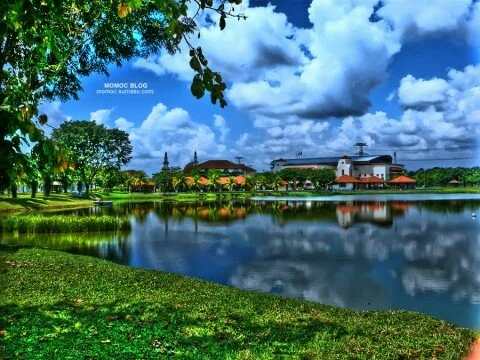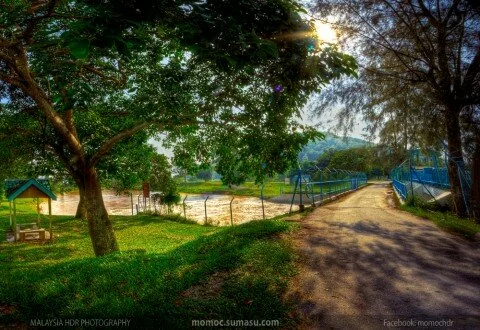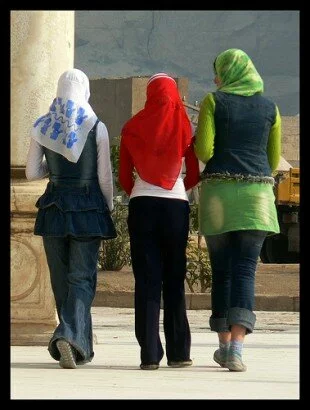
Maryland Gov. Martin O’Malley in recent weeks has dined with the Irish prime minister and led a sing-along at the Israeli Embassy. Now add a ginger foray into the thicket of U.S.-Islamic relations.
O’Malley (D) on Wednesday waded quite a bit beyond his known comfort zone, as a panelist discussing “The Challenges and Opportunities of the American Muslim Community” at the U.S.-Islamic World Forum.
Sitting alongside two Muslim scholars, the first Muslim Congressman, and a White House official who specializes in minority outreach, O’Malley mostly stuck to broad strokes about the role of government officials in facilitating cross-cultural exchanges.
But at other times his comments differed notably from the often academic tone of his fellow panelists. Taking his turn answering a question about Sept. 11, 2001, O’Malley began by saying “I felt as if all of the points of attack were all around us,” he said, listing how Maryland was surrounded by tragedy in the District, New York and Pennsylvania.
“The way it changed our attitude and reactions?” O’Malley continued. “Well, people throughout our country were asking for the first time – and with a lot of fear as they watched the news — questions like “Where is Saudi Arabia?” Who are Muslims?” “Who is Bin Laden?” “Why did this happen?” And, “what is going to happen next?”
“As mayor then, I look back at it now and think in retrospect that we did a lot of things we probably didn’t need to do and some that were silly.
“We deployed police officers to guard all of our drinking water reservoirs. We took big dump trucks and put them all around Baltimore’s World Trade Center – a building that is very small, by comparison, to the ones that were tragically attacked on that day.”
But O’Malley said he did two things right:
“We immediately deployed police commanders to our mosques and imams to ask them if they wanted additional protection, and how visible they wanted it. The second thing we did is that we immediately set upon bringing in the leaders of the various parts of a broad and diverse Muslim-American community in Baltimore, in order to bring them close and reach out, and from the highest levels of our elected government say “we need you, we are all very scared, but rather than retreating, we need you to become more engaged than you’ve ever become.”
“When I think back on it, the way it changed us, was the very different way of looking at our Muslim-Americans as an asset, as people, and families and leaders that we need, rather than ‘oh my goodness, they might be people that are a part of this horrible thing that happened to us.’ And that was a fundamentally different way that we looked at things.”
O’Malley also repeatedly referred to his goal as an “architecture of civic engagement,” a line he said came from Homeland Security Secretary Janet Napolitano.
Asked after the panel what he meant, O’Malley said: “It’s a common term in the homeland security committees, I’m not sure how broadly understood it is. It’s probably a wonky term. … It comes down to doing the things we do in Maryland, recruiting Muslim Americans to boards and commissions … and making sure a certain amount of your time as a chief executive is spent, rightly, encouraging engagement of our Muslim-American neighbors, whether it’s the food drives, annual dinners, Ramadan at Government House, it’s all those things.”
O’Malley was introduced as one of the “true up-and-coming stars in American politics,” by moderator Stephen Grand, the director of the project on U.S. Relations with the Islamic World at the Brookings Institution. O’Malley, he said, “is looked upon as one of more innovative and dynamic governors in terms of reaching out and trying to engage with a variety of communities of faith.”
Asked about the weighty topic and his increasing presence in some of Washington’s diplomatic circles, O’Malley deflected the idea that he’s seeking a broader stage.
“I’m here doing Maryland’s work. I’m not pursuing my global hegemony or world dominance,” he quipped.
O’Malley is expected to travel abroad in coming months.
“The bottom line is I’d like to think that those of us in public office can be a positive force,” he said. U.S.-Islamic relations “tends to be talked more about in law enforcement and homeland security types of settings, but I think they are the least capable of doing this sort of building up of civic engagement. The people who are best capable are mayors, regardless of Republican or Democrat. This has to happen locally.”
Source : Washington Post
No Comments »
No comments yet.
RSS feed for comments on this post. TrackBack URL
Leave a comment

- 3d islamic wallpaper
- Afghanistan muslim girls
- Algeria Muslim
- Allah Miracle wallpapers
- Allah Wallpapers
- arab muslim girls
- Birds Wallpapers
- Chinese Muslim Photo
- desktop wallpaper
- Economic News
- Egypt Muslim
- EID 2010 Photos
- Eid Wallpapers
- Flood in Pakistan
- Health, Beauty and Islam
- Hindi News
- history of islam
- Home News
- Home Page
- India muslim girl
- Indian News
- Indonesia Muslim Girl
- Iran Muslim
- Iraq Muslim
- islam religion
- islam symbol
- islamic art
- islamic books
- islamic calendar
- islamic calligraphy
- Islamic Cloths
- Islamic History Wallpaper
- Islamic Photos
- islamic places
- Islamic Sayeri
- islamic songs
- islamic video
- Islamic Wallpapers
- Israel Muslim
- Japan Muslim Photo
- Jordan Muslim
- kalima shahada mentioned in quran
- Karbala Photos
- kerala muslim girls
- Kissing Photos
- Latest News
- Latest Posts
- Malaysia Muslim
- Marriage And family
- marriage in islam
- MEHNDI DESIGNS
- Modern Muslim Women & Challenges
- Mosque
- Mosque Wallpapers
- Muharram Photo
- Muslim baby wallpaper
- Muslim Boys singapore
- Muslim Fashion Girl
- Muslim Girls
- muslim girls hijab
- muslim girls in bangalore
- muslim girls in china
- muslim girls in hyderabad
- muslim girls in pune
- muslim girls in uk
- Muslim Marriage photos
- Muslim Photo From Around the world
- Muslim Women World
- Na-at Sharif
- Nigeria Muslim
- Pakistan News
- Pakistan Photos
- Pakistani Delegates visit to India
- pakistani girls
- Palastine muslim
- Palestinians Muslim
- Quran Quotes
- Ramadan Wallpapers
- Random 40 Hadith
- Saudi Arabia Muslim
- Saudi Arebia Girls
- singapore
- Singapore Mosque
- Singapore Muslims
- single muslim girls
- South Korea Muslim
- Stories of sahaba
- Tajikistan Muslim
- tamil muslim girls
- Turkey Muslim
- UK Muslim
- United Arab Emirates
- Urdu News
- USA Muslim
- Women's Rights in Islam
- World
- اسلامی تاریخی تصاویر
- اسلامی ڈیزائن گھر
- خوبصورت جگہ کا تصوير
- خوبصورت مسجد کا تصوير


- There is no God save One Allah.
- Allah Himself is witness, there is no god but He. The angels and the men of learning too are witness.
- This is Allah your Lord. Him, therefore ,you should worship.
- That is Allah , your lord, There is no god save Him.
- There is no God Save Allah, and Allah is Exalted in power The Wise.
- Why ARE so many modern British career women converting to Islam?
- Beaituful Indonasian Model
- Modern Indonasian Muslim Model
- Jobs, Women and Islam
- The Fight for Rights: Muslim Women
- Oppression faced by Muslim Women
- Muslim women as Wives
- Muslim Women and jobs in the modern World
- Muslim Women after 9/11
- The differences between Western feminism and Islamic feminism concerns the issue of veiling.
- Nice Woman photo
- Young Libyan Woman photo
- Veiled Yemeni women in computer class, Taiz Yemen.
- Yemen Mystery woman of Al Mukhala Fish Market
- Women Banned from American Court for wearing niqab
- Why does Taslima Nasrin want to burn the Hijab
- Walking to Change the World
- This lady has gone back to her native place in Andhra she visited my work place every Thursday
- These girls are just like any other girls in the world, they love to sit around and talk.
- The Muslim World Within a World
- Thai Muslim girls watch a Silat demonstration
- Surat Web Design
- Web Desgin Company
- kolkata Web Design Company
- albom
- islame
- One hopes good sense prevails all around. And amity and pea
- these are very nice and beautiful wallpapers..i really liked
- Assalam-o-Alykum & Hi, My name is Muhammad Ata-ul- haq S
- these are very nice and beautiful wallpapers..i really liked
- nice job......................
- nice work keep it up........................
- Sa pagkakaalam ko ang muslim bAwal mangmura,
- assalamu aleikum warhmatullah*mujhe ek assi muslima chahiye









